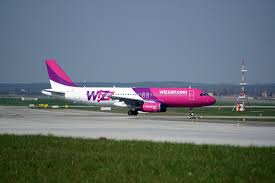Flight cancelations are an inconvenience in air travel, as they disrupt plans and often lead to frustration among passengers. Understanding common reasons for flight cancellations helps travelers prepare and respond effectively to such situations. Here are the top four reasons why flights get canceled, including how to seek flight cancelation compensation.
1. Weather Conditions
One of the most frequent causes of flight cancelations is adverse weather conditions. Airlines and airports are highly sensitive to weather patterns that could affect the safety of a flight. This includes severe storms, hurricanes, snow, fog, and even volcanic ash clouds. Weather conditions can lead to a series of cancelations, not just because of immediate weather at one airport but also due to the weather at destination airports or along the flight path.
What to do: When a flight is canceled due to weather, airlines often do not offer compensation, as such situations are considered out of their control (extraordinary circumstances). However, the airline should offer rebooking options or refunds.
2. Technical Problems
Safety is a top priority in aviation, and even minor technical glitches can lead to flight cancelations. Regular maintenance checks are scheduled for all aircraft, but unexpected issues can arise that will require further inspection or immediate repair.
What to do: If a flight is canceled due to technical problems, passengers are generally entitled to flight cancelation compensation under EU Regulation 261/2004, as these issues are considered within the airline’s control. Passengers should file a claim with the airline, stating their case and requesting compensation.
3. Crew Issues
Airlines adhere to strict regulations regarding crew working hours. These regulations are designed to ensure that pilots and cabin crew are sufficiently rested to perform their duties safely. Crew scheduling problems—such as delays, illness, or hitting legal working limits—can lead to cancelations if replacements are not readily available.
What to do: Like technical issues, crew-related cancelations are viewed as within the airline’s control. This means passengers may claim canceled flight compensation. Contact the airline directly to understand your rights and initiate a compensation claim.
4. Operational Decisions
Airlines may cancel flights for operational reasons, such as insufficient passengers or issues at the airport, like runway closures or congestion. Sometimes, operational reasons can overlap with strategic financial decisions made by the airline to avoid losses on under-booked flights.
What to do: When cancelations are due to operational decisions directly under the airline’s control, passengers are eligible for compensation. It’s important to inquire with the airline about the specific reasons for the cancelation to determine if you’re eligible for compensation, and then proceed to make a claim.
How to Claim Compensation
When a flight is canceled and it falls under scenarios where the airline is at fault, passengers should:
- Communicate directly with the airline to confirm the reason for the cancelation and your eligibility for compensation.
- File a compensation claim through the airline’s website or customer service. Provide all necessary documentation, such as your booking confirmation and tickets.
- Use services like Flightright or seek the help of an attorney to ensure that the claim is processed efficiently.
Conclusion
Understanding why flights get canceled and knowing your rights regarding compensation helps relieve the stress and inconvenience of travel disruptions. By being informed and prepared, you can handle these challenges more effectively and ensure that your travel rights are respected.

